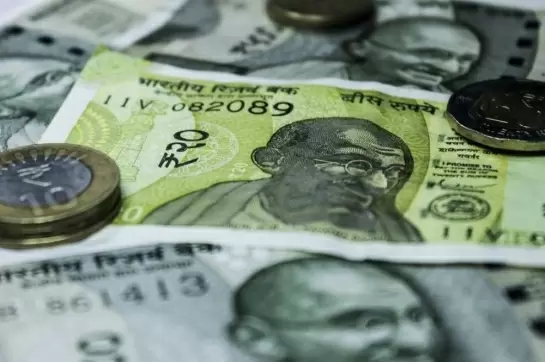Land of the Apple Basket of the World
Srinagar/New Delhi
30-October-2021
.webp)
PHOTO: IANS
Kashmiri Apples (tsonth) have been mentioned many times in history, far back as the 7th century when a Chinese pilgrim Hieun Tsang sang about the fruit's sweetness. The high-altitude temperate region of Kashmir is known to be the ideal fruit cultivation land. During his reign in the Valley, Sultan Zain-ul-Abidin (15th century) imported many fruit grafts and laid out orchards to grow them. But the historical account of Kalhana in Rajtarangni proves that the cultivation of apples in the Valley is an affair that dates back more than 3,000 years.
Horticulture is one of the prime industries of the Valley - especially the apple industry, which is a means to income for 55 per cent of the Kashmiri population generating revenue of Rs 1,500 crore annually. The Union Territory administration is focused to set up high-density orchards that accommodate more plants with a better yield variety - Grade-A quality apples.
Many districts have witnessed a change of landscape recently; hundreds of acres of land used by brick kiln makers and paddy fields have been converted to apple orchards to support farmers. The government has helped farmers to set up the plant and infrastructure with a 50 per cent subsidy and free consultations on topics such as cutting, pruning, grading, etc. These farmers are making about Rs 1 lakh per kanal shifting to the apple crop.
To boost the horticulture industry J&K administration is promoting new scientific techniques and methods for the farmers to help them produce this sweet king of the Valley. They are setting up free knowledge centers to educate growers on topics like urea spraying purpose, dosage, and timing, to clear misconceptions on crop diseases, and to bring uniformity in yield. The government has provided for farm machines like tractors and sprayers and trained farmers with marketing and packaging know-how. This has changed the economic profile of the industry.
Besides the economic value, the conversion of paddy fields to high-yielding apple orchards has created new job opportunities. A year back the Union government had approved the MIS (Marketing Intervention Scheme) for the horticulture sector which continues to ensure optimum prices to the apple farmers and the needed fillip to the economy. It also provides for insurance cover, thereby stabilizing the farmers' income. As 12 LMT (Lakh Metric Tonnes) of apples can be produced under this scheme, job opportunities for ancillary services like transportation, cleaning orchards, labeling, and categorizing, are also on the rise. The MIS scheme launched in September 2019 was lauded by the apple farmers as it was a ray of hope after disturbances in the valley following the abrogation of Article 370.
The facility of cold storage in the Valley has also proven to be a boon for the farmers - losses have been minimized to a large extent. Prices have been stabilized at a handsome range; a 10-kg apple box demands anywhere between Rs 1,000 - Rs 1,800, depending upon the quality. Cold storages located at Shopian, Pulwama, Lassipora, and a few other areas of the north, can store up to 2.5 LMT of apples.
Watch This TWL Video
Now the apples are directly procured by the National Agricultural Cooperative Marketing Federation (NAFED) from the growers/aggregators at optimum prices and the payment is promptly made to the parties through the bank. With no middlemen, no delayed payments, and reduction of distress sales, farmers can focus tension-free on their orchards. The government has also guaranteed NAFED a sum of Rs 2,500 crore for this process; and the losses, if any, are to be shared equally between the Central Government and UT administration.
Kashmir, despite militant activities and cross-border terrorism has always shown exceptional interest in the fruit business, being the biggest producer and supplier of quality apples for centuries. With the new road projects under the National Highways and Infrastructure Development Corporation Limited (NHIDCL, Ministry of Road Transport and Highways), the apple business of Kashmir is only looking to compete for the first position in the world. The convenience of good roads will increase outreach for farmers and boost tourism; India is also discovering the potential for orchard tourism in the region. The success story of this fruit would have taken to the air long ago had it not been for the political twist in the erstwhile state when in 1990, militancy put an end to a European project of introducing new high-density rootstocks.
Fast forward today, the success of new varieties of apples - M-106 (a semi-dwarf apple rootstock introduced in 2004) and M-9 (a dwarf apple rootstock introduced in 2016) has doubled and tripled the profit of the apple farmers. In fact, M-9 variety has an added benefit of granting "guaranteed returns" as their size is so small that unforeseeable climatic conditions like hailstorms cannot harm them; hail nets can shield them easily. M-9 rootstock trees also stretch the harvest season by four months; from June to November the trees bear steady fruit - a phenomenon never seen before. Thanks to the Centre for the 'Apple Push', today Kashmir is witnessing a new sunrise - IANS
More Headlines
Karnataka Withdraws CID Probe in Ranya Rao Gold Smuggling Case
New Kerala Guv Strikes Cordial Tone, Hosts CM Vijayan And FM Sitharaman In Delhi
Digital Payments Surge in India: 18,120 Crore Transactions in FY24-25
Weather Dept Predicts Heavy Rains In Several TN Districts
Chitra Subramaniam’s Book Boforsgate Exposes Arms Trade, Corruption, and Political Intrigue
Karnataka Withdraws CID Probe in Ranya Rao Gold Smuggling Case
New Kerala Guv Strikes Cordial Tone, Hosts CM Vijayan And FM Sitharaman In Delhi
Digital Payments Surge in India: 18,120 Crore Transactions in FY24-25
Weather Dept Predicts Heavy Rains In Several TN Districts
Chitra Subramaniam’s Book Boforsgate Exposes Arms Trade, Corruption, and Political Intrigue










